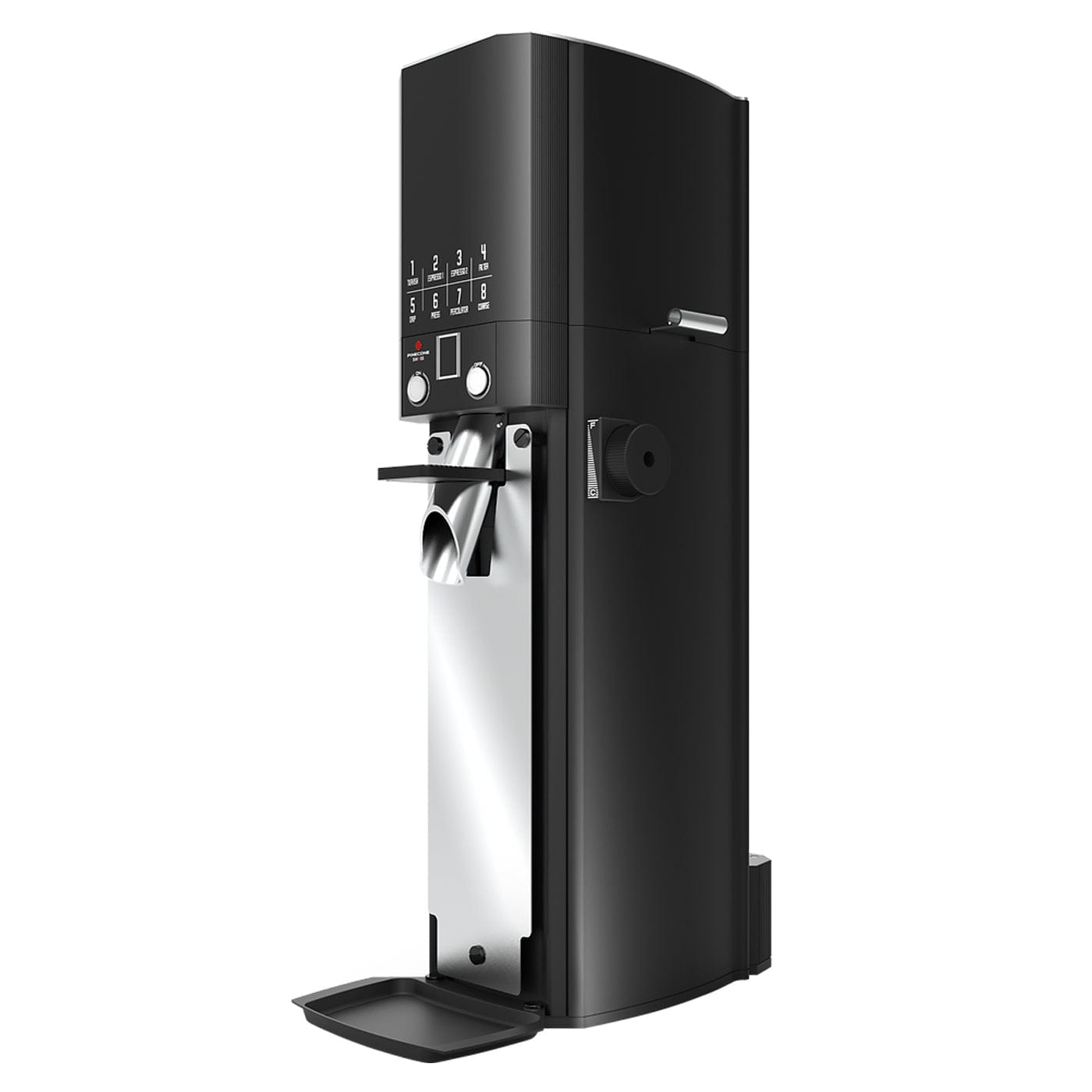Industrial Coffee Grinder: Important Qualities to Look for When Buying
Industrial Coffee Grinder: Important Qualities to Look for When Buying
Blog Article
Industrial Coffee Mill Guide: Increase Performance and Quality
In the affordable landscape of coffee production, picking the right commercial coffee mill plays a critical duty in enhancing both efficiency and item quality. Comprehending the subtleties of various mill kinds and essential features-- such as customizable work setups and durable building-- can dramatically affect the last flavor profile of the coffee. In addition, the optimization of the grinding process, coupled with diligent maintenance, is important for maintaining performance in time. As we explore these important components, it comes to be noticeable that the ramifications expand beyond mere equipment selection, impacting total business success in means that warrant closer evaluation.
Comprehending Mill Types
When choosing a commercial coffee grinder, recognizing the various kinds readily available is vital for enhancing both taste removal and operational performance. The two primary sorts of mills are blade mills and burr grinders. Blade mills use sharp blades that slice coffee beans into inconsistent dimensions, resulting in irregular removal and potentially unfavorable flavors. While blade mills are usually much more appropriate and budget friendly for small-scale operations, they are typically not recommended for commercial usage.

Ultimately, choosing the right sort of grinder is essential to preserving top quality and efficiency in coffee manufacturing, making it necessary for companies to buy premium burr grinders for ideal results.
Key Features to Think About
Picking an industrial coffee mill needs careful factor to consider of a number of key attributes that can considerably affect both performance and the overall coffee experience. One of the main elements to evaluate is the grinding mechanism. Burr mills are generally liked over blade grinders, as they offer a constant work size, which is critical for ideal removal and flavor.
Another important function is the grinder's capability. A flexible mill with several settings allows you to tailor the grind dimension to various developing approaches, enhancing the coffee's taste account.
The building and construction product also plays a duty in resilience and upkeep. Stainless-steel parts usually offer longevity and are much easier to clean up, which is necessary for maintaining hygiene criteria. Last but not least, assess the mill's sound degree, specifically in an active café or production setting, where extreme noise can be turbulent. Purchasing a grinder that stabilizes these features can significantly boost both operational effectiveness and the high quality of the coffee served.
Optimizing Grinding Process
To accomplish the ideal outcomes in coffee preparation, enhancing the grinding procedure is important. The work size considerably affects extraction, taste, and general top quality of the made coffee.


In addition, keeping track of the grinding speed can enhance the process. Slower grinding often produces much less warmth, maintaining delicate flavors and scents. Alternatively, faster grinding might produce too much warm, negatively affecting the coffee's quality.
Upkeep and Care Tips
Proper maintenance and care of industrial coffee grinders are vital for ensuring optimal performance and longevity. Routine cleansing is the structure of maintenance; residue accumulation can impact flavor and grinding effectiveness. It is suggested to cleanse the grinder after each usage, cleaning down the exterior and removing any coffee premises from the burrs.
Additionally, inspect the grinding burrs for damage. Boring burrs can endanger grind uniformity, so they need to be changed as necessary. Industrial Coffee Grinder. Regularly adjusting the mill is also essential, as this maintains the preferred grind dimension for numerous brewing techniques
Lubrication of moving parts must be carried out according to the producer's specifications, as this reduces rubbing and extends the life of the equipment. It is necessary to make use of food-grade lubricating substances to make sure safety and conformity with health and wellness laws.
Finally, maintain the mill in a stable and completely dry atmosphere to avoid corrosion and deterioration. By sticking to these upkeep and care pointers, operators can boost the effectiveness of their industrial coffee mills while ensuring premium result and prolonged operational life.
Return on Financial Investment Analysis
Reviewing the return on investment (ROI) for commercial coffee grinders is critical for services looking for to optimize their coffee manufacturing capacities. A comprehensive ROI evaluation helps establish the financial feasibility of buying top quality mills, allowing organizations to evaluate the initial costs versus prospective gains.
Evaluate the acquisition rate of the grinder, consisting of installation and any type of essential a knockout post adjustments to existing infrastructure. High-performance grinders typically lead to lowered grinding time and increased throughput, which can dramatically enhance performance.
Additionally, consider the influence on item top quality. Industrial Coffee Grinder. Superior mills yield a more constant work dimension, which can improve flavor profiles and client contentment, eventually driving sales. By enhancing the high quality of the last product, businesses can warrant higher pricing, causing enhanced earnings
Verdict
In summary, a commercial coffee mill plays a pivotal duty in improving both efficiency and item top quality within coffee production. By choosing premium burr grinders furnished with essential features such as flexible work settings and sturdy building and construction, organizations can make sure ideal flavor extraction. Moreover, routine maintenance is essential for maintaining grinder performance and making the most of consumer satisfaction. Eventually, the calculated financial investment in a reliable grinder contributes substantially to enhanced earnings and competitiveness in try this the coffee market.
In the affordable landscape of coffee manufacturing, choosing the best industrial coffee grinder plays a critical function in improving both effectiveness and item high quality. The 2 main types of mills are blade grinders and burr mills. Within the burr grinder category, there are level burr mills and cone-shaped burr grinders, each with its benefits. Burr mills are generally liked over blade grinders, as they provide a constant grind size, which is vital for optimum extraction and flavor.
In recap, an industrial coffee grinder plays an essential role in boosting both performance and item quality within coffee manufacturing.
Report this page